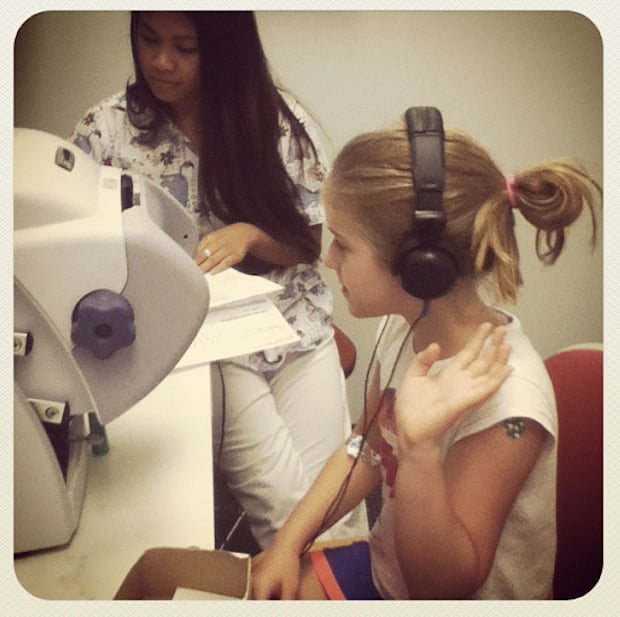Did you know that nearly 50-million Americans have some sort of hearing loss? I’m one of them—I was born deaf in my left ear from genetic nonsyndromic senorineural hearing loss.
Hearing loss is actually the country’s most common birth defect. In fact, two to three of every 1,000 children born in the United States are deaf or hard-of-hearing. And ninety percent of those kids have parents who can hear, like me. I wasn’t fully diagnosed until I was a teen.
Perhaps even more interesting, the National Institute on Deafness and Other Communication Disorders (NIDCD) says that only 20% of the staggering number of people who could benefit from hearing aids are actually using them. Hearing research and technology have made huge leaps and bounds since I was a child, and the 40-million people not taking advantage of them are missing an opportunity to hear much better.
So in honor of Better Hearing and Speech Month—which continues through the end of May—here are eight reasons to get a hearing check now:
1. You’ve probably noticed a hearing problem already but done nothing about it. Don’t worry, you’re not alone. People generally wait seven to ten years between the time that they notice a hearing problem and the time they actually make an appointment with an audiologist or ENT.
2. Even if you’ve had regular physicals and appear to be in good health, you could have a hearing issue. Only 16% of physicians routinely screen for hearing loss.* Since a hearing exam is not a standard part of most examinations, you typically have to make a separate appointment—and you may not have known to do so since many general practitioners don’t suggest it.
3. If you are a recent veteran, chances are your hearing was damaged during your service. 60% of veterans returning from Iraq and Afghanistan come home with hearing loss and/or tinnitus.
4. Hearing loss can cause learning delays, and your child might be among the 20% of preschoolers to fail a hearing screening*, but the earlier the problem is caught, the better.
5. Hearing loss can lead to depression and social isolation—it can affect nearly every aspect of your life. Treating hearing loss can help people re-engage with their communities and even be able to stay more involved with their families.
6. A recent study out of Johns Hopkins showed that people with mild hearing loss are twice as likely to develop dementia—a likelihood that increases with the severity of the hearing loss. Researchers are still searching for reasons for this correlation, but one hypothesis is that the isolation and depression caused by untreated hearing loss may contribute to cognitive decline. It’s possible that, by treating hearing loss, we may be able to stave off dementia.
7. One in five teenagers now has a hearing loss. The supposition is that this is caused by toxic levels of noise from mp3 players. While parents have for years been encourage their teens to turn the music down (listening at maximum volume for more than 15 minutes a day can cause a permanent hearing loss!), it’s also important to ask if they’re having trouble hearing and get their hearing checked.
8. If you pledge to get your hearing checked, you can help the Hearing Health Foundation raise money. For each online pledge up to 10,000, healthyhearing.com will donate a dollar to the Hearing Health Foundation to help fund hearing research. And a bonus: the Foundation will help you find local audiologist and otolaryngologist and provide information about what questions you should be asking when you visit.
Elizabeth Thorp is a family travel expert and writer. She is the founder of Poshbrood, a curated catalog of mom-tested, upscale, family-friendly vacation properties. She has been navigating public affairs and communications in Washington for 20 years. Elizabeth lives in Bethesda with her husband, Almus, and three young daughters Isabelle, Lucy, and Penelope.
*Statistic provided by Center for Hearing and Communication, from data collected in New York City.










